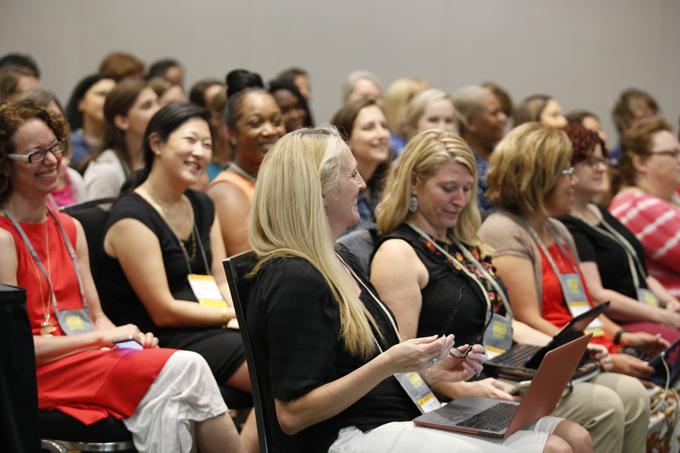
Schools that prioritize literacy as a central mission of the school have greater retention, more proficient readers, and higher levels of overall academic achievement. But what does that mission look like in practice, and how can we get there?
As we count down to
the International Literacy Association 2019 Conference with its theme of Creating a Culture of Literacy, we asked our Twitter community, “What is something often overlooked when working to create a culture of literacy in learning environments?” Their responses remind us that there’s no one-size-fits-all blueprint; the exact formula is unique to each school and classroom.
“Authenticity. Don’t get so caught up in teaching lessons that you lose sight of teaching kids through responsive teaching within a cohesive literacy environment.”
—Kristen Babovec, educational consultant, Texas
“When creating a culture of literacy, don't overlook local knowledge and traditions. These can be marginalized in the haste to conform to mainstream norms. Be sure to adopt a broad definition of literacy to promote inclusion.”
—Salika A. Lawrence, associate professor of literacy and teacher education, New York
“Educators are so caught up in teaching the skills and strategies of reading education, not to mention TDA’s, that we neglect to discuss the deeper concepts and themes within the text. Ask, ‘What are we reading?’ and ‘Why are we reading it?’ Bring back collaborative conversations.”
—Kimberly Kennedy, gifted support (fifth grade), Pennsylvania
“My colleagues and I have found that people often think of literacy culture as a classroom, but the best literacy culture is schoolwide and community-wide. It involves everyone: teachers, crossing guards, administrative assistants, ELA and non-ELA staff, bus drivers...EVERYONE!”
—Kenneth Kunz, K–12 supervisor and ILA Board member, New Jersey
“Student culture.”
—Aleshea Jenkins, teacher, literacy specialist, instructional coach, Missouri
“Involving parents in that learning environment/learning culture beyond using ‘reading logs.’ More work needs to be done so that parents know what is expected, and so that they may contribute.”
—Kristopher Childs, national mathematics content specialist, Florida
“Community perspective towards literacy.”
—Federico Brull, Mexico
“Something that is often missed on our rush to address gaps in literacy is explaining to students what literacy is for and that one of its most overlooked purposes is enjoyment. We must show and practice with our students the sheer fun of reading by offering choice, knowing what is available for students and helping them access it by building their own libraries, having library cards, access to audio books and a teacher modelling a love of reading on a daily basis from K–12 and across all subject areas.”
—Dia Macbeth, assistant principal, Canada
“A community of stakeholders who actually read for pleasure and enjoy reading. No one has all of this mysterious time to read, but we who value reading get it done. Besides the modeling aspect, enthusiasm for reading comes from adults who are actually enthusiastic readers.”
—Shalonda Archibald, ELA Response to Intervention teacher and literacy coach, New Jersey
“I think we often overlook how important pre-K literacy is and its capacity (if done right and effectively) to create a culture of eager readers and writers ready at kindergarten and beyond. Pre-K should be every child's right and not just for those who can afford it.
—Oluwaseun “Seun” Aina, founder of Magical Books, Nigeria
How do you work to create a culture of literacy in your workplace? Do any of these statements resonate with you? Join the conversation on Twitter.
Alina O’Donnell is the communications strategist at ILA and the editor of Literacy Daily.